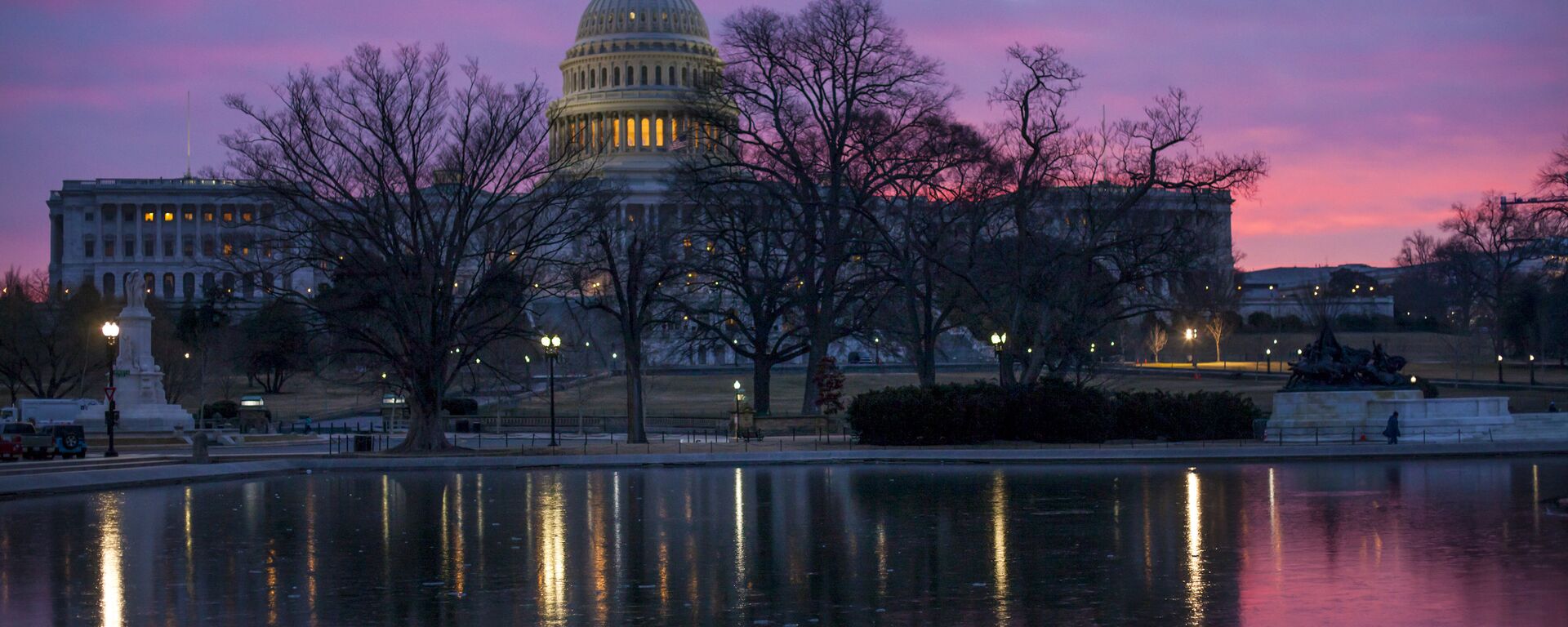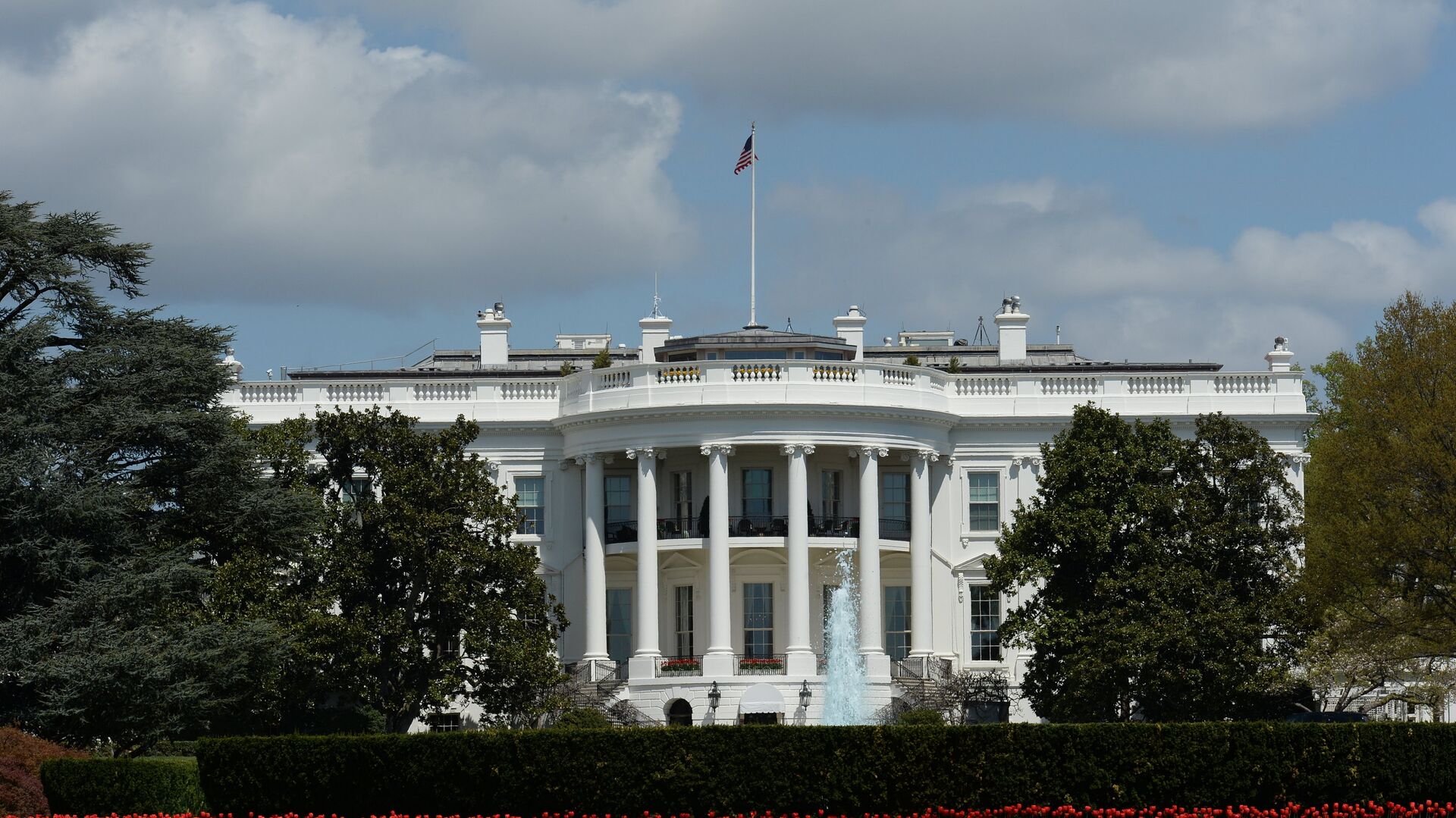https://sputnikglobe.com/20211001/despite-congress-passing-stopgap-funding-bill-us-government-couldnt-avert-partial-shutdown-1089586328.html
Despite Congress Passing Stopgap Funding Bill, US Government Couldn't Avert Partial Shutdown
Despite Congress Passing Stopgap Funding Bill, US Government Couldn't Avert Partial Shutdown
Sputnik International
Lawmakers were forced to pass stopgap legislation to avert an imminent and complete government shutdown. The risk of the latter came after the Democrats failed... 01.10.2021, Sputnik International
2021-10-01T17:54+0000
2021-10-01T17:54+0000
2021-10-01T17:54+0000
us
white house
government shutdown
https://cdn1.img.sputnikglobe.com/img/105607/76/1056077692_0:160:3077:1890_1920x0_80_0_0_3c1f93ec9c7877400a73ac3867914f4e.jpg
The Department of Transportation is set to shut down on 1 October even after Congress passed stopgap funding legislation on 30 September to avert a broader government closure due to the lack of a negotiated budget for the next fiscal year.While the rest of the government is money-strapped until December, non-critical parts of the Department of Transportation will cease their operations soon unless one of two things happen. Namely, the Democratic Party might end its internal wrangling, negotiate a final version of the infrastructure bill, and pass it without the GOP's participation. Or, alternatively, Congress might adopt a short-term extension of the Highway Trust Fund.The fund is a separate source of funding for most of the Department of Transportation. It was thus not included in the stopgap legislation that Congress urgently passed on 30 September. Without it, 4,000 DoT employees will be furloughed and the department will stop providing some of its non-critical services. However, some of the department’s employees, such as air traffic controllers and other aviation-related personnel, will continue to work.The US faced the risk of a government shutdown in September after the Democrats gave up attempts to negotiate the budget with the Republicans due to disagreements over Joe Biden's planned massive spending on infrastructure. GOP lawmakers repeatedly pointed out that they would not back an infrastructure reform whose funding is not backed by the resulting economic benefits – which is not the case with the bill that is filled with various additions, such as help for migrants and environment-related projects.The Democrats have long considered passing the legislation by themselves by using their razor-thin majority and a measure called the "budget reconciliation process" that allows for bypassing a Republican filibuster. However, the moderate and progressive wings of the party still can't agree on certain parts of the infrastructure bill, leaving it hanging in limbo as intra-party negotiations continue.
https://sputnikglobe.com/20210930/dems-strike-deal-with-gop-to-avert-govnt-shutdown-as-senate-schedules-thursday-vote-on-stopgap-bill-1089536920.html
white house
Sputnik International
feedback@sputniknews.com
+74956456601
MIA „Rossiya Segodnya“
2021
Tim Korso
https://cdn1.img.sputnikglobe.com/img/07e6/03/0d/1093831826_0:0:216:216_100x100_80_0_0_e3f43a960af0c6c99f7eb8ccbf5f812c.jpg
Tim Korso
https://cdn1.img.sputnikglobe.com/img/07e6/03/0d/1093831826_0:0:216:216_100x100_80_0_0_e3f43a960af0c6c99f7eb8ccbf5f812c.jpg
News
en_EN
Sputnik International
feedback@sputniknews.com
+74956456601
MIA „Rossiya Segodnya“
Sputnik International
feedback@sputniknews.com
+74956456601
MIA „Rossiya Segodnya“
Tim Korso
https://cdn1.img.sputnikglobe.com/img/07e6/03/0d/1093831826_0:0:216:216_100x100_80_0_0_e3f43a960af0c6c99f7eb8ccbf5f812c.jpg
us, white house, government shutdown
us, white house, government shutdown
Despite Congress Passing Stopgap Funding Bill, US Government Couldn't Avert Partial Shutdown
Lawmakers were forced to pass stopgap legislation to avert an imminent and complete government shutdown. The risk of the latter came after the Democrats failed to reach a deal on a new budget with the Republicans, or at least achieve intra-party unity on Biden's infrastructure bill to pass it unilaterally.
The Department of Transportation is set to shut down on 1 October even after Congress passed stopgap funding legislation
on 30 September to avert a broader government closure due to the lack of a negotiated budget for the next fiscal year.
While the rest of the government is money-strapped until December, non-critical parts of the Department of Transportation will cease their operations soon unless one of two things happen. Namely, the Democratic Party might end its internal wrangling, negotiate a final version of the infrastructure bill, and pass it without the GOP's participation. Or, alternatively, Congress might adopt
a short-term extension of the Highway Trust Fund.
The fund is a separate source of funding for most of the Department of Transportation. It was thus not included in the stopgap legislation that Congress urgently passed on 30 September. Without it, 4,000 DoT employees will be furloughed and the department will stop providing some of its non-critical services. However, some of the department’s employees, such as air traffic controllers and other aviation-related personnel, will continue to work.

30 September 2021, 05:16 GMT
The US faced the risk of a government shutdown in September after the Democrats gave up attempts to negotiate the budget with the Republicans due to disagreements over Joe Biden's planned massive spending on infrastructure. GOP lawmakers repeatedly pointed out that they would not back an infrastructure reform whose funding is not backed by the resulting economic benefits – which is not the case with the bill that is filled with various additions, such as help for migrants and environment-related projects.
The Democrats have long considered passing the legislation by themselves by using their razor-thin majority and a measure called the "budget reconciliation process" that allows for bypassing a Republican filibuster. However, the moderate and progressive wings of the party still can't agree on certain parts of the infrastructure bill, leaving it hanging in limbo as intra-party negotiations continue.



